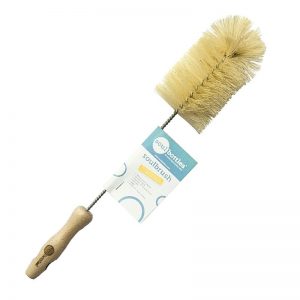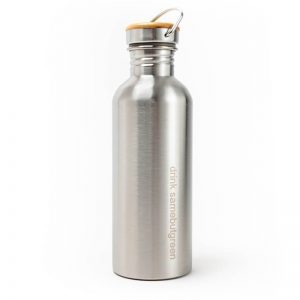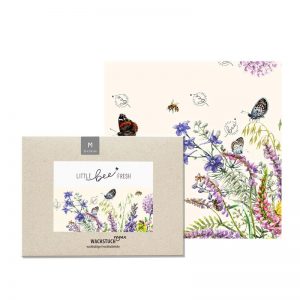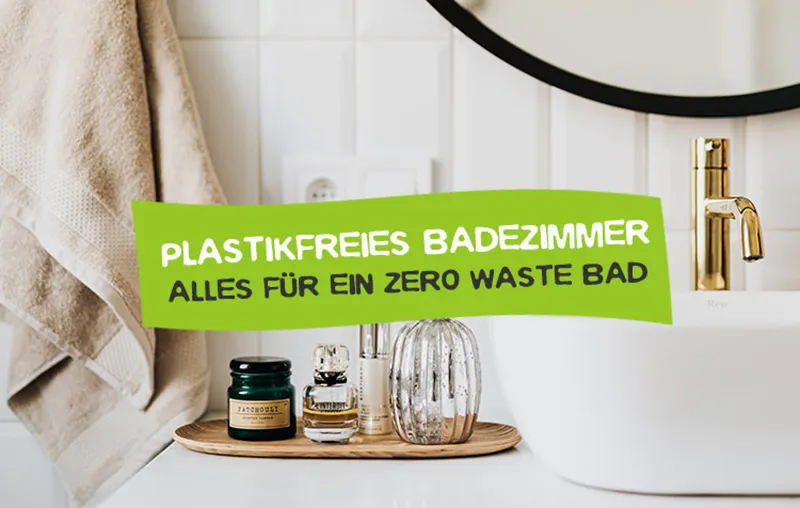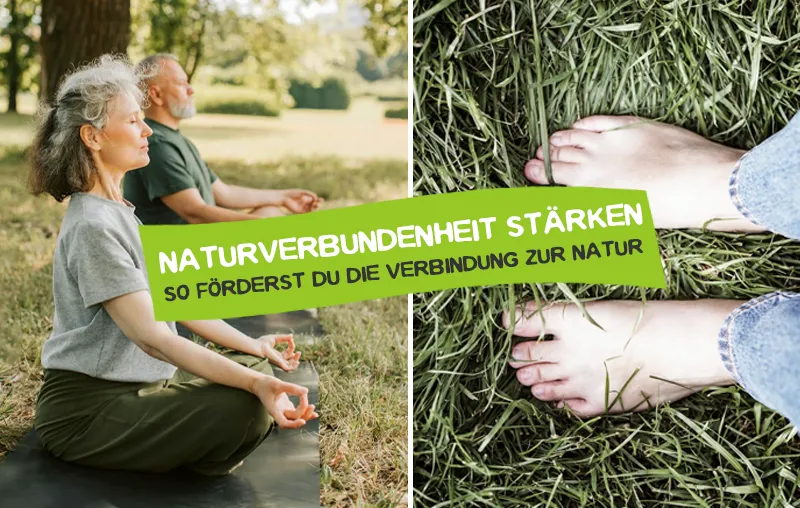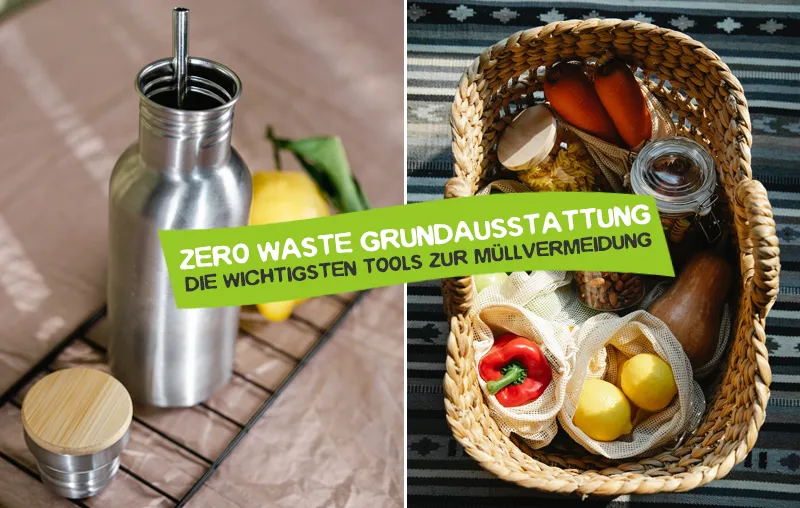Looking for the best zero waste tips for less waste in your everyday life? Then you are absolutely right here! In our Throwaway Society we produce an average of around 483 kilograms of waste per capita. The potential to avoid waste is therefore greater than ever these days! Fortunately, the zero waste movement is no longer a new phenomenon and already has countless tips and tricks for you that are really easy to implement.
In this article, I would like to give you the best and most valuable measures for avoiding waste in all areas of everyday life. It doesn't matter whether you're a zero waste beginner or advanced - just implement them into your life bit by bit. Let's go!
Here you can find a short overview in advance:
Definition: What is Zero Waste?
Zero Waste is a waste-avoiding lifestyle and literally means "Zero garbage". In the long term, the aim is to, to produce as little waste as possible in one's own life.
Among other things, in order to natural resources of the earth and preserve a clean planet for future generations.
Benefits: Why Zero Waste?
The most significant Zero Waste tip is definitely to know at all times why you should actually consciously avoid trash. Here are some Advantages and reasonswhich should serve your lasting motivation:
Environment and Protect animals
Waste such as plastic waste are not biodegradable and linger (depending on the material) for centuries in nature. At the same time, the garbage is not only an aesthetic, but above all a life-threatening disturbance factor. Especially for wild animals that eat it or strangle themselves on it.
Conserve resources
Avoiding waste means reducing the natural resources of the earth to conserve. This works pretty much automatically when Zero Waste is implemented. For example, since the waste of food is avoided, on Reusable alternatives set and as possible Packaging material is dispensed with will.
Save money
Reusable things you have to pay in the best case only once - You buy disposable products over and over again. It's only logical that you'll save money by avoiding waste, sustainable lifestyle saves money. At the same time, the costs for waste processing are also reduced, which means that your region benefits from financial savings.
Be a role model
Above all, however, Zero Waste also serves personal development. Those who consciously avoid waste are leading the way and are always aware that we all have a Responsibility for future generations (i.e. also for our children and grandchildren) on earth.
124 Tips to Avoid Waste in Your Everyday Life
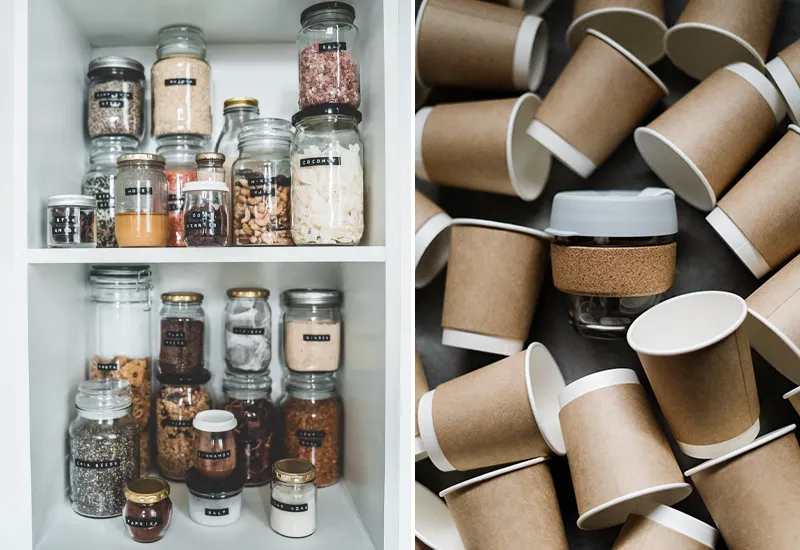
Now you know, why Zero Waste is so important is. So we can now well prepared and highly motivated move on to the practical tips for waste prevention in everyday life.
For a better overview I have divided into classic categories. However, one or two tips can of course also help you in other areas of everyday life 🙂
And one more thing: no one manages to make absolutely no garbage these days. Just be aware, that every waste prevention measure, no matter how small but implemented, makes sense.
Zero Waste Basics for Beginners
- Buy things only once if possible.
- Use what you have.
- Prefer reusable to disposable. (e.g. these glass straws* instead of plastic straws)
- Buy used instead of new. (e.g. cheap Second hand books at medimops*)
- Share, give away or trade things you don't need.
- Own things with long, rather than short, useful lives.
- Borrow and lend items you don't need as often or for long.
- Prefer quality over quantity.
- Only buy things that you really need. (Book Tip: The minimalism project*)
- Repair items when they no longer work.
- Make the things you want yourself. (see DIY Blog)
- Talk to manufacturers to redesign products to be as waste-free as possible.
Continuing contributions: For more information and other helpful tools, you are welcome to read the blog articles Zero Waste Beginner and Zero Waste Basic Equipment to get to know each other.
Zero Waste Shopping and Conscious Consumption
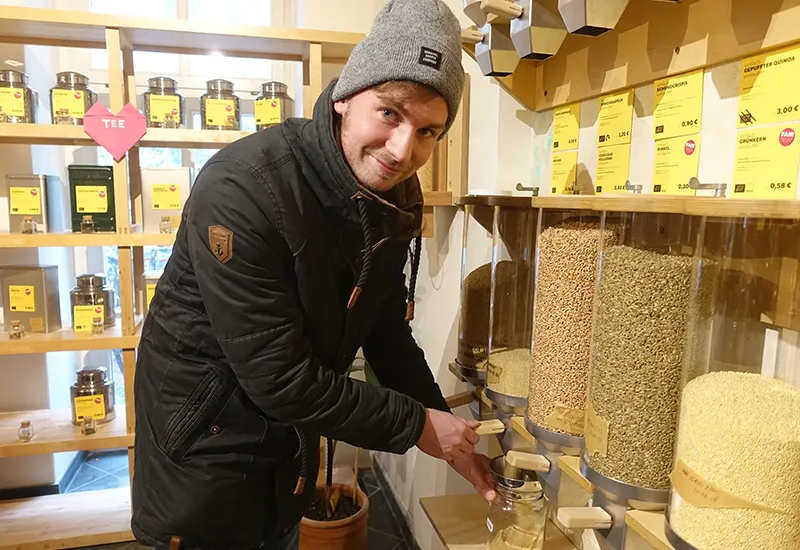
- When shopping, I always have a basket, bag or Backpack with it. (Tip: GotBag at Avocadostore*)
- Buy products loose without packaging (at the unpackaged store).
- Replace plastic bags with Fruit and vegetable nets. (is available here*)
- Plan your meals ahead so you don't buy more than you need.
- Stick to your shopping list to avoid impulse buys.
- Buy at the regional weekly market or directly from farmers.
- Prefer crooked fruits and vegetables and lonely bananas.
- Buy food in bulk if it will last long enough.
- Ask yourself before every purchase whether you really need this item. (see sustainable consumption)
- Tell the cashier you don't need the receipt before it prints.
- Borrow literature from the library or buy it second-hand. (e.g. here at medimops*)
- Do something with your friends instead of shopping when you are bored or having a bad day.
- Before you buy something in emotional exuberance that you do not need, then sleep another night over it and then decide prudently.
- Donate unused or intact used items to thrift stores.
- Pack gifts as plastic-free as possible in newspaper or simply not at all.
- Prefer experiences to material things. (e.g. Survival training via Jochen Schweitzer*)
- Buy children's toys used and sell them when you no longer need them.
- Sell and give away things you no longer need. (e.g. via classified ads)
- Consciously avoid returns for online orders.
Continuing contributionsIf you want to delve deeper into the subject, I can recommend the articles Second hand advantages, Buy used goods, Live minimalist, Plastic free shopping and Sustainable online stores recommend
Reducing Waste in the Kitchen and at Home
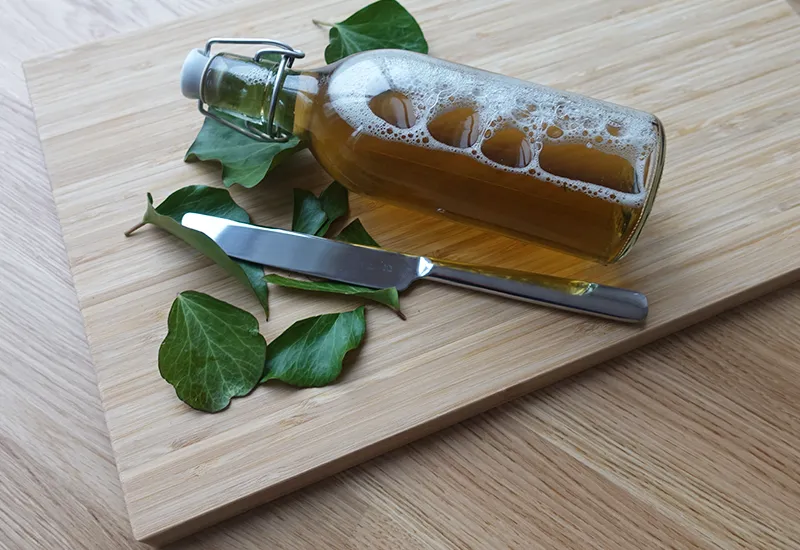
- Make your own Washing up liquid from ivy her.
- Replace cling film with Stainless steel lunch boxes and Oilcloths. (is available here* and here*)
- Organize your food supplies into Preserving jars, so as never to buy too much.
- Use dish towels and rags instead of paper towels.
- Use pasta water to thicken sauces or water plants.
- Get Glass drinking straws or stainless steel instead of plastic and paper. (is available here*)
- Air clothes instead of washing them once they have been worn and are still clean.
- Use coffee grounds as a scrub, odour remover or natural fertilizer. (see Coffee grounds applications)
- Always fill the washing machine and dishwasher properly before you turn them on.
- Dry your clothes outside on the line instead of in the dryer.
- Forgo the air conditioner and the permanently open tilt window and instead shock ventilate early in the morning.
- Plaster with reusable cloth rags.
- Make your own cleaning products. (e.g. DIY oven cleaner or DIY glass cleaner)
- Prefer reusable batteries instead of disposable batteries.
- Attach the "No advertising!" sticker to the letterbox. (is available here*)
- End unnecessary subscriptions to newspapers, magazines and brochures.
- Fold your Garbage bags for organic waste from old newspaper.
- Raise your child with reusable cloth diapers instead of disposable diapers.
- Use compostable Dog waste bags. (is available here*)
Continuing contributions: If you want to know even more about these Zero Waste tips, feel free to also take a look at the articles Saving energy in the home, Zero Waste Cleaning, Coffee grounds applications as well as Unsubscribe from advertising by mail.
Zero Waste Food and Eating Habits
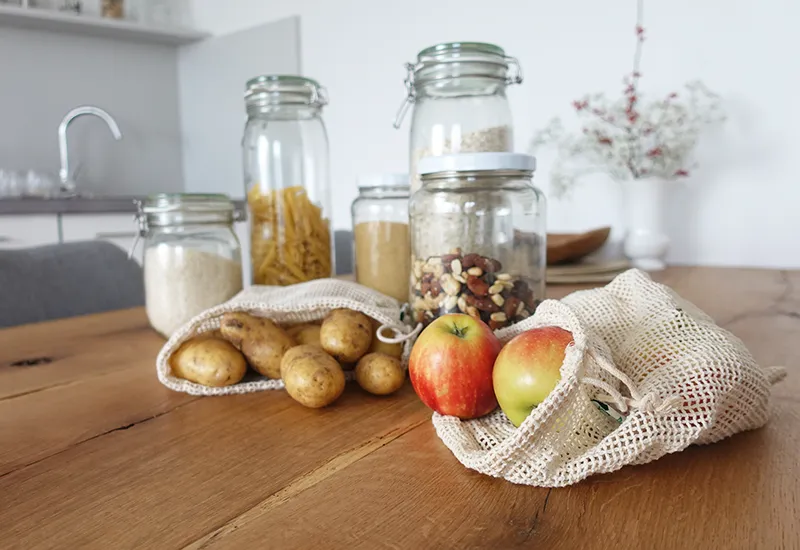
- Eat a plant-based, regional and seasonal diet and avoid meat and the like (Cookbook tip: Vegan diet for beginners* with basic knowledge and simple recipes)
- Save food with food sharing or apps like ToGoodToGo.
- Learn to use food completely. (see Utilize leftovers)
- Preserve food in jars to make it last longer.
- Make your own Bread chips from stale bread her.
- Sort your food into the correct refrigerator compartments.
- Freeze food plastic free in glass, cloth, paper or cans.
- Cook fresh and avoid waste-producing to-go and convenience meals.
- Stock up so you can avoid rushing orders to delivery services when things might get stressful.
- Cook more of your dinner as lunch for the next day.
- Ask for plastic-free or reusable packaging materials when you do order food from a delivery service.
- Prefer natural home remedies instead of pills when a cold is on the horizon.
- Drink tap water instead of water from plastic bottles. (see Tap water advantages)
- Process leftover vegetables into smoothies or vegetable soup.
- Don't take the best-before date too seriously, and instead trust your senses when it comes to expired food.
- Buy tea in bulk and use a Stainless steel tea strainer to boil. (is available here*)
Continuing contributionsIf you want to find out more about the zero waste tips mentioned, you can read the blog posts Making food last longer, Reduce food waste, Buy regionally, Seasonal shopping, Add flavor to tap water and Reasons for vegan lifestyle read in.
Low-Waste Bathroom and Personal Care
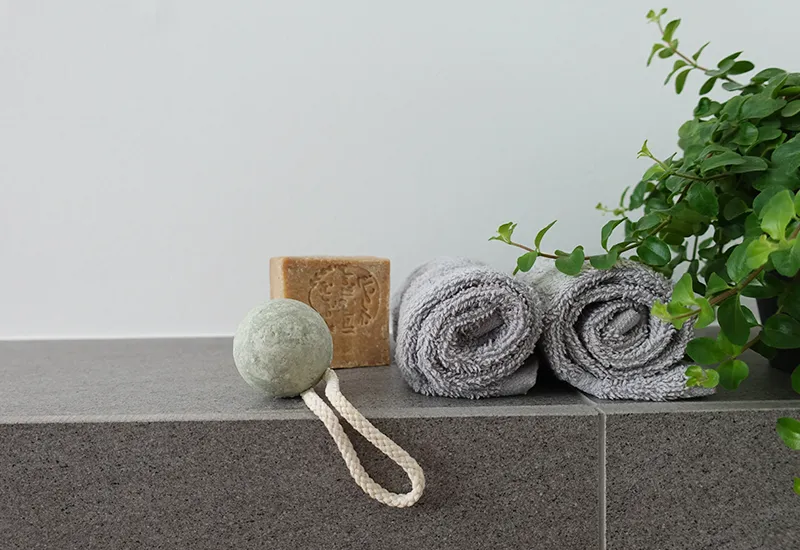
- Use bar soap when showering and as a substitute for liquid hand soap. (e.g. these*)
- Make your own toothpaste or use toothbrush tablets. (is available here*)
- Use reusable metal ear swabs. (is available here*)
- Swap your plastic toothbrush for one that is Bamboo toothbrush on. (is available here*)
- Replace disposable pads and tampons with cloth pads and a Menstrual cup. (is available here*)
- Learn your Making sunscreen yourself.
- Turn off the faucet when you shower or brush your teeth.
- Replace the disposable razor with a Stainless steel razor plane. (is available here*)
- Prefer plastic free Lip balm instead of plastic chapstick. (is available here*)
- Produce your own deodorant from natural ingredients.
- Go for washable cotton pads. (is available here*)
Continuing contributions: Suitable for this you get in the articles Bathroom without plastic, Save water in the home and Sustainable body care more valuable info.
Zero Waste Living and Home Setup
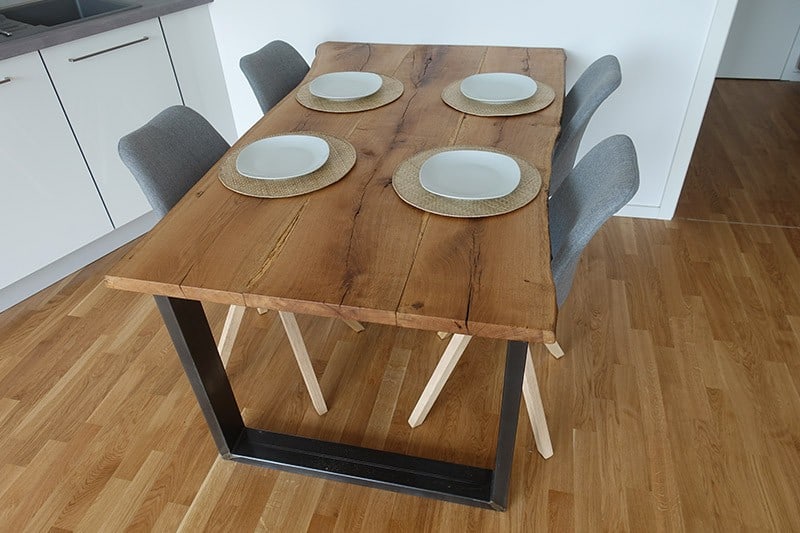
- Build your own furniture from old materials. (e.g. a DIY dining table)
- Switch to LEDs for your light bulbs.
- Turn off your technology completely instead of going into standby mode.
- Process old bedding and towels into handkerchiefs and cloth bags.
- Use linen napkins instead of disposable alternatives for dining. (there's here*)
- Only buy the technical devices that you really need in everyday life.
- Just dress a little thicker instead of turning up the heat.
- Donate old furniture and other items to social service organizations.
Continuing contributions: If you want to know even more, you will find in the DIY Furniture Blog and in the blog articles Sustainable living and Environmentally friendly home found.
Zero Waste in Your Garden
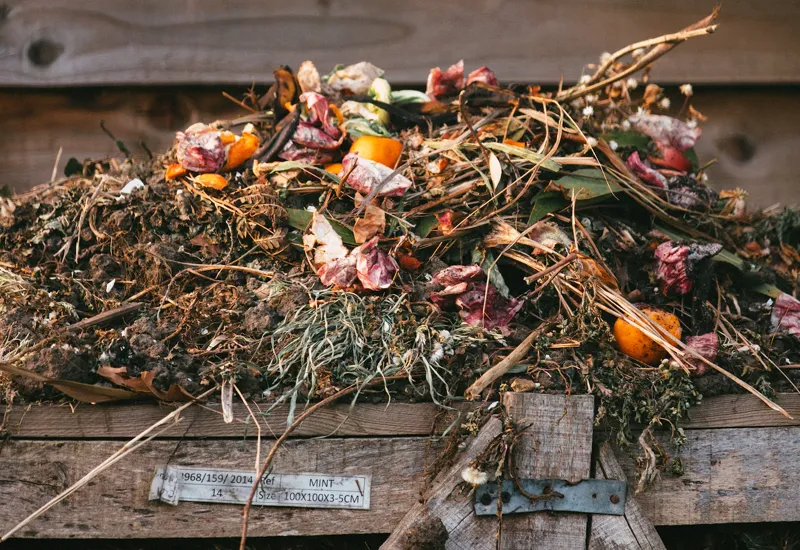
- Create a compost heap and produce soil from organic waste.
- Collect rainwater with a cistern or barrel for irrigation. (Tip: This old whiskey barrel*)
- Check with family, friends and neighbors first before buying a new garden tool.
- Grow your own food. (My raised bed recommendation*)
- Use old egg cartons and yogurt cups to grow seedlings.
- Obtain and exchange seeds at public swap meets.
- Water your garden when the sun has set.
- Fight pests in a natural way. (e.g. Ladybugs against aphids)
Continuing contributions: If you want to know more about Zero Waste tips and a more eco-friendly garden, be sure to check out these articles Sustainable gardening, Bird friendly garden and Proper composting inside.
Zero Waste Clothing and Wardrobe Tips
- Prefer durable clothing that is timeless and easy to combine. (see Capsule Wardrobe)
- Only buy clothes that you will definitely wear.
- Consciously reduce the number of wash cycles.
- Go for a natural moth repellent, like cedar. (is available here*)
- Have damaged shoes repaired by a cobbler.
- Keep all spare parts in a designated place.
- Make a tote bag out of an old t-shirt.
- Swap clothes at a clothing swap party instead of buying them new.
- Have garments that are too big or too small fitted by tailors:inside.
Continuing contributionsFor more in-depth knowledge on these ideas, check out the following articles Slow Fashion, Sustainable fashion, Sustainable fashion brands and Tips for more durable clothing.
Reducing Waste at Work and in the Office
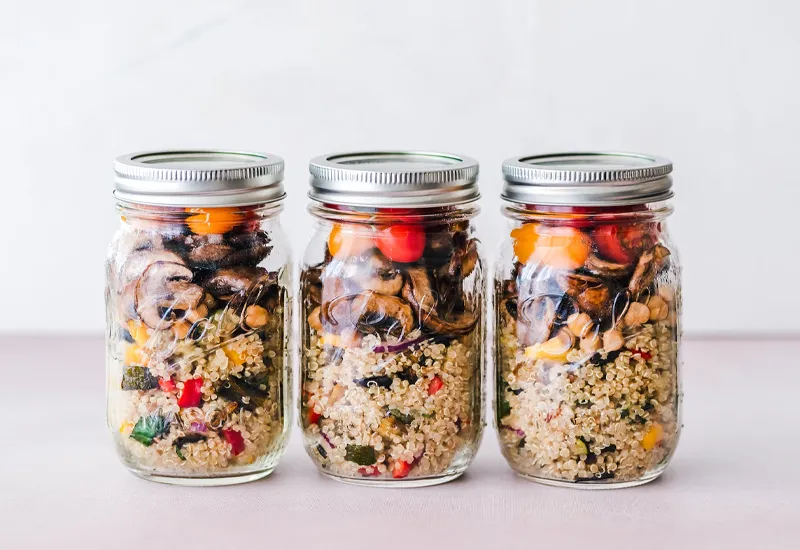
- Print documents on both sides if printing cannot be avoided.
- Use public transportation or carpool to work.
- Always have a reusable CoffeeToGo mug with it. (is available here*)
- Take food from home to avoid to-go garbage at lunchtime.
- Digitize your office and reduce paper consumption.
- Use shredded paper as sustainable filling material for packages.
- Use recycled paper if paper consumption cannot be avoided.
Continuing contributions: You can find out more about these tips for less waste in the blog articles Sustainable commute, Sustainable printing, Save paper, Paperless office, Sustainable office.
Waste-Free Tips for Travel and Life on the Go
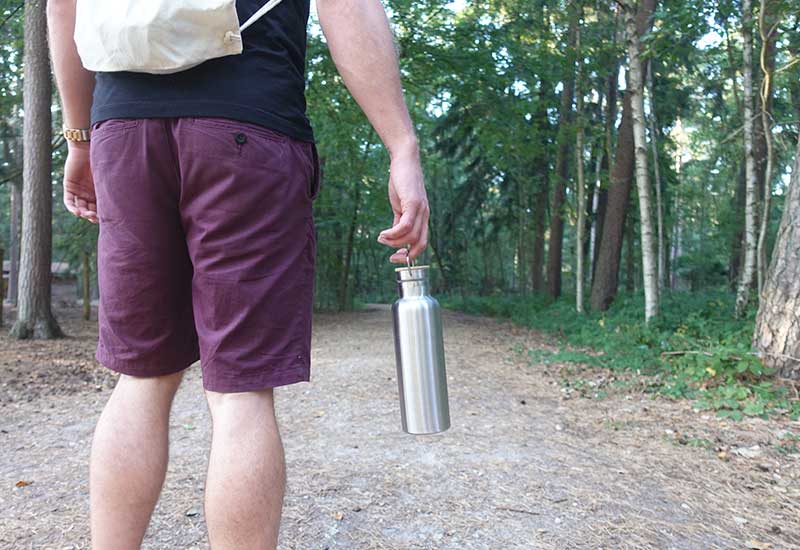
- Don't leave home without a filled water bottle. (Here are the best drinking bottles in comparison)
- Use your bike, public transportation, or even car sharing instead of your car.
- Reject free promotional items and brochures in the pedestrian zone.
- When ordering at the café, ask to do without the straw.
- Drink your coffee at the table in the café instead of taking it in a disposable cup.
- Replace paper tissues with a Cloth handkerchief. (is available here*)
- Refill your water bottle with tap water on the way.
- Collect trash from the environment and dispose of it properly.
- Forgo the bakery bag if you consume baked goods directly anyway.
- Learn, to specifically avoid waste at festivals.
- Make sure you use the towels in the hotel several times.
- Always have a Zero Waste on vacation Travel bestcorner set with it. (is available here*)
- Prefer travel accommodations with a green, waste-avoiding philosophy.
- Organize a CleanUp and free a vacation beach from garbage.
- Avoid souvenirs, which usually disappear into junk drawers anyway.
Continuing contributions: If you want to produce even less waste, you should also take a look at the articles Zero Waste Travel, Sustainable souvenirs and Plastic free camping throw
Know the Tips – and Start Reducing Waste in Daily Life
How can you avoid waste in everyday life? As you can see, the answer is not complicated at all! Anyway, now you have a A cornucopia of practical tips for less waste in everyday life. Try to implement them bit by bit so that you can continue to reduce your personal waste. But also be aware that zero waste is a marathon and not a sprint where everything has to go perfectly 🙂
However, if some garbage accumulates again, you should Always dispose of correctly, to natural Continue to conserve resources in your everyday life.
"We don’t need a handful of people doing zero waste perfectly. We need millions of people doing it imperfectly."
Anne Marie Bonneau (more at Zero Waste Quotes)
I very much hope that my zero waste tips will help you and that you will get a little closer to a waste-free lifestyle every day. Do you have any questions, suggestions or other tips for avoiding waste? Then I look forward to your comment.
Stay clean,

PS: I have also given you a detailed blog article with the Tips for plastic free living written. And if you like, you can also read my book Get plastic-free living for beginners*so that your learning curve is really steep. Have fun reading 🙂

